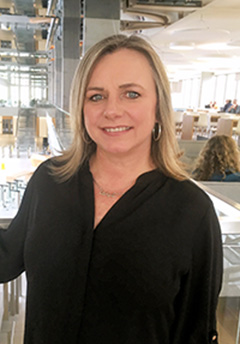Helen Rees-Bidder explains why the concept of oracy is vital for young learners, and suggests how oracy skills can be improved.
 Helen Rees-Bidder
Helen Rees-Bidder
Oracy’s origins and its importance in learning
The term ‘oracy’ was coined in the 1960s by Andrew Wilkinson. His notion was that oracy – the ability to express oneself fluently in speech – should be given equal status to numeracy and literacy in school curriculums, yet over 50 years later that does not seem to be the case in the majority of schools.
In schools where students are educated in English, but another language is spoken at home, leading learning through oracy is even more important.
Language needs to be acquired naturally to build up natural fluency. Rather than learning new vocabulary for use in written responses, students should be offered opportunities to build content vocabulary through discussion and oral presentations. If a student’s spoken English improves, developments in their written English will follow.
Oral skills in schools
As head of a performance arts faculty, I became aware of how many senior teaching staff disliked doing formal presentations. Often the greatest fear of a newly appointed Head of Year was taking assemblies.
I also noticed that in meetings colleagues often avoided opportunities to voice their opinions or make contributions, yet after the meetings would have plenty to say about what had been discussed as we walked back to our cars.
It seemed odd that people who had chosen a profession which is so reliant on effective speaking were so uncomfortable when using their oracy skills outside the safety zone of their own classrooms.
How to improve oracy?
Confidently speaking in public, whether as a presenter or in a meeting, is something that I have always taken for granted, presumably linked to my love of acting as a school and university student.
It was really through extra-curricular drama provision that I learnt to use my voice effectively, work collaboratively and develop my confidence.
It was only when I began to teach drama in a very academic school that I realised that parents often encouraged (or sometimes forced) their son or daughter to take drama or speech & drama lessons to build up their confidence, presentational skills and articulacy rather than because they enjoyed acting.
It then struck me that it shouldn’t be dependent on a drama department to teach and develop oracy skills, which are so crucial in all aspects of 21st-century life. Children need to be confident and effective communicators to become empowered young citizens.
In the world of work, how successfully we communicate is likely to be the primary judgement of our effectiveness whatever field we are in.
Surely it is the job of every classroom teacher, whatever the subject, to develop oracy skills?
Helen Rees-Bidder is an independent educational consultant, senior examiner and lead trainer for Cambridge Assessment International Education. She was a teacher of English and Drama for 27 years.